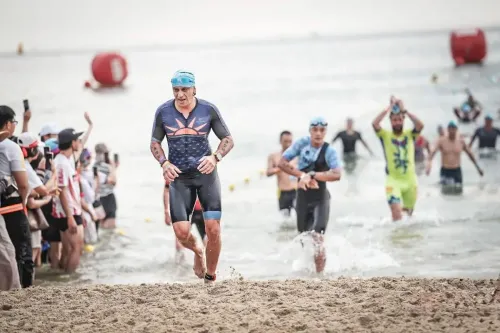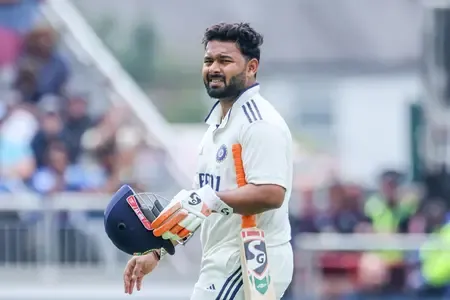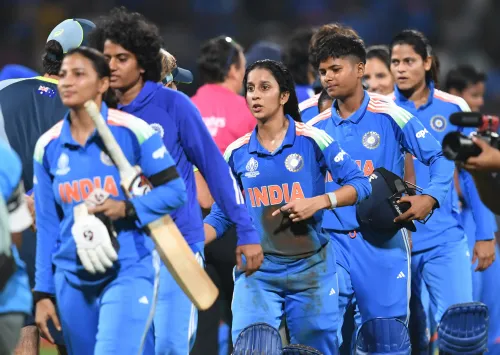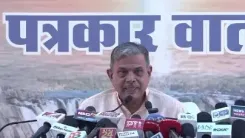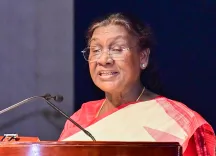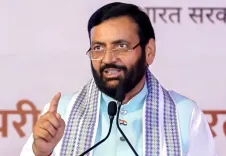India Ranks Second for Banned Athletes; AFI Officials View It Positively
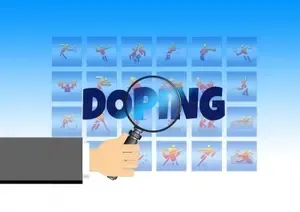
Synopsis
Key Takeaways
- India is second in banned athletes.
- Increased testing is seen as positive.
- Neeraj Chopra highlights doping concerns.
- AFI emphasizes zero tolerance for doping.
- Efforts to educate athletes are ongoing.
Mumbai, Jan 14 (NationPress) India is now ranked second on the global list of nations with the highest number of athletes barred from competing in international competitions. However, the outgoing president of the Athletics Federation of India (AFI), Adille Sumariwala, along with World Championship bronze medallist Anju Bobby George, believes this trend is a positive development, as it signifies that more athletes are being caught, indicating enhanced testing to unearth all the “crooks and culprits”.
Data released by the Athletics Integrity Unit (AIU) for the year concluding December 2024 reveals that Kenya leads with 119 cases, while India follows with 108.
Russia ranks third, having 73 athletes who are ineligible, as reported by Telecom Asia Sport (www.telecomasia.net) on Monday.
China has only 26 such incidents, and the United States has just 16.
In the past month, India has recorded four new athletes added to the ineligible list.
The AIU, an independent entity established to oversee the anti-doping program for World Athletics, recently suspended Indian middle-distance runner Archana Jadhav for the use of a prohibited substance.
In December 2024, the AIU sanctioned three Indian athletes -- sprinter Ankit Kumar (100m, 200m), Vinit Rathi, who competes in the 3000m steeplechase and 5000m, and Jeyavindhiya Jegadish, an Asian junior medallist in women’s 400m and 400m hurdles -- for failing dope tests. Kumar received a four-year suspension, while the others were suspended for three years.
This upsurge in doping incidents has prompted two-time Olympic medallist in javelin throw, Neeraj Chopra, to highlight doping as a significant issue within Indian athletics.
“Doping is a major issue in India among our athletes. I want to advise them that once doping crosses their mind, it becomes challenging in the future. They struggle to perform at higher levels. They may think that only doping can enhance their performance, but that is not the truth. It is their dedication, self-belief, and proper coaching that will propel them forward,” Chopra stated recently.
Chopra, who secured India’s first gold medal in athletics at the 2020 Tokyo Olympics and a silver medal at Paris 2024, has accurately identified this issue as the number of positive doping tests has surged in India.
There has been a significant increase in the number of ineligible athletes over the past two years in the top two offending countries -- Kenya and India.
On December 31, 2022, Kenya and India had 54 and 65 ineligible athletes, respectively, but these numbers soared to 119 and 108 in the same period in 2024.
Overall, this trend presents a troubling scenario for sports in India, and if it continues, it could further damage the nation’s reputation, especially as India is keen on hosting the Summer Olympics in 2036.
“If more people are getting caught, it indicates that we are conducting more tests, catching more offenders, and exposing all the crooks and culprits. Thus, this is a good sign that individuals are becoming aware that eventually, they will be caught if they engage in doping, leading to a long-term reduction in such practices,” Sumariwala remarked to Telecom Asia Sport.
Anju, the first Indian athlete to win a medal at the 2003 World Athletics Championships, praised the AFI for its initiatives to educate athletes and offered some wisdom to the youth.
“Avoid sacrificing your future for immediate benefits. Make smart choices,” she advised, urging them to steer clear of the doping trap.
“The Athletics Federation of India maintains a zero-tolerance policy towards doping. Most doping incidents occur at the district level, where district coaches may even provide banned substances to young athletes, which is also an offence under the Juvenile Act,” Sumariwala noted.
He suggested that establishing doping as a criminal offence could be an effective approach to combat the issue, and the AFI is collaborating with the government to strengthen the doping legislation.


